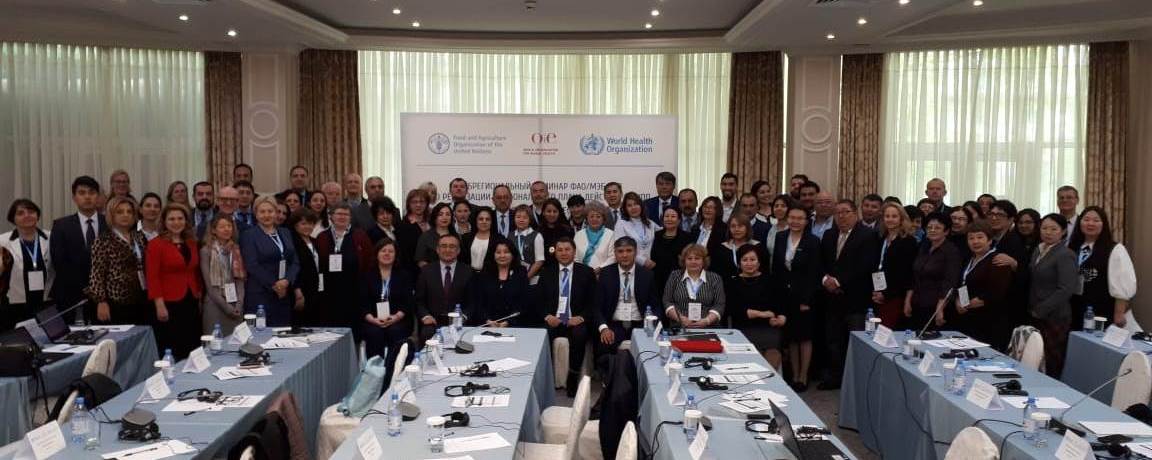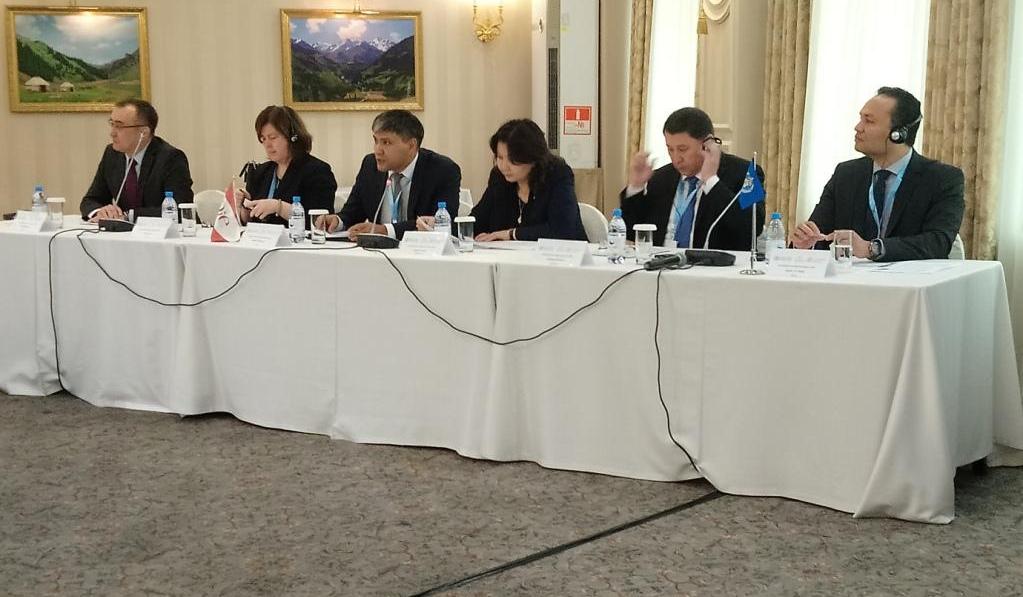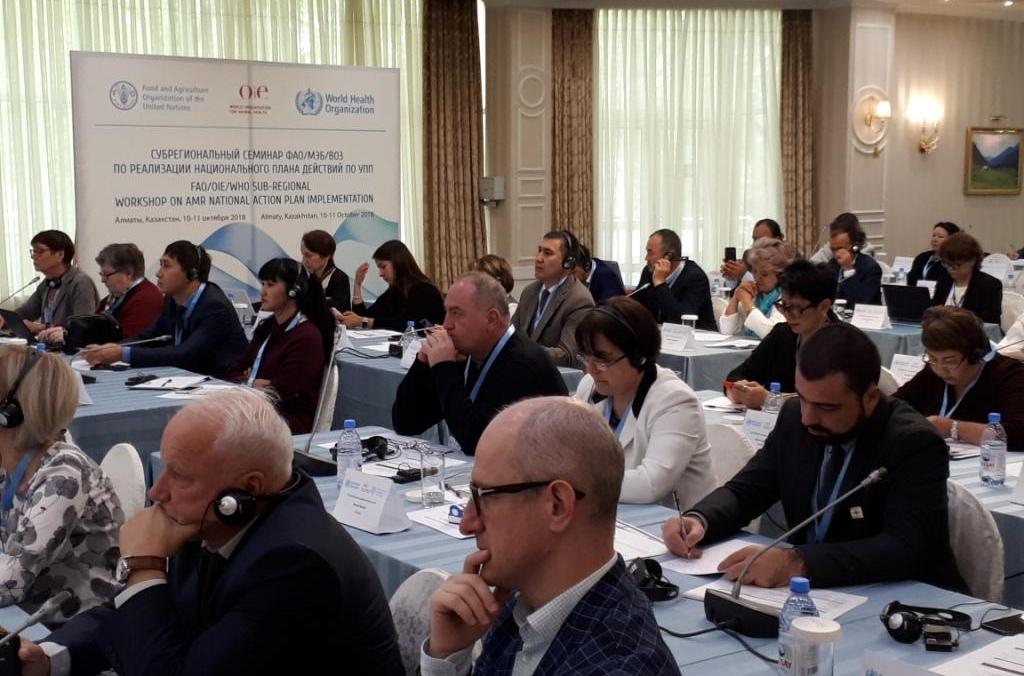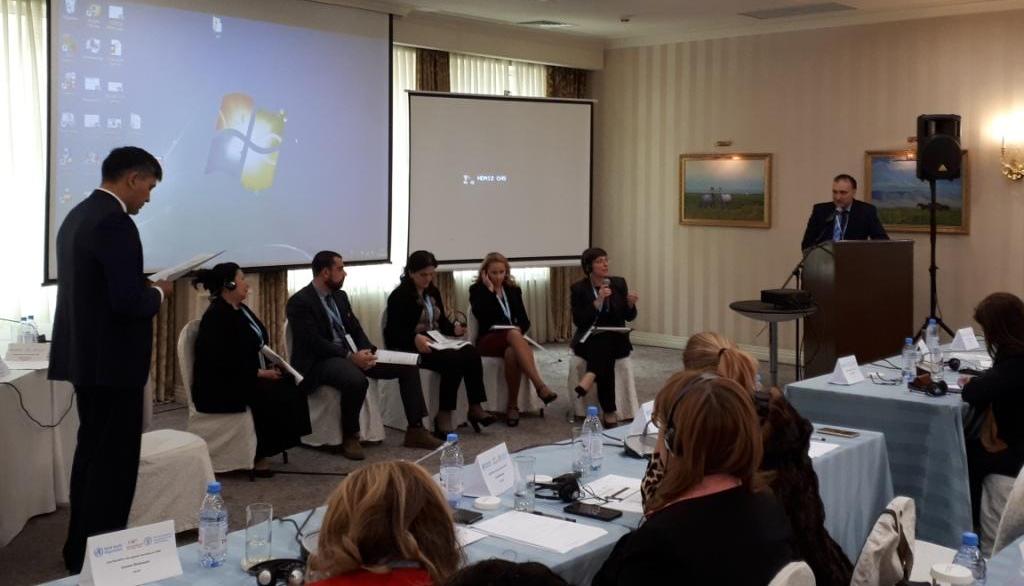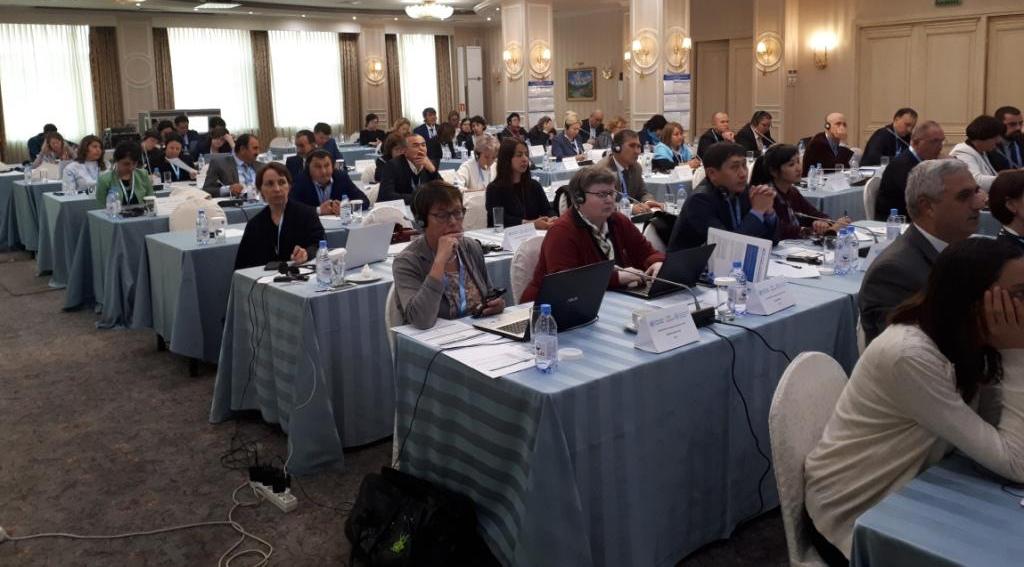For the second time, representatives of the Ministries of Health and Agriculture, Veterinary Services, and Public Health Services gathered to exchange on the development of their National Action Plan and actions to address AMR across all sectors (NAP-AMR). After the first edition, involving 4 Central Asian countries (Kazakhstan, Kyrgyzstan, Tajikistan, and Uzbekistan) in Bishkek (Kyrgyzstan) in June 2017, the tripartite alliance continues to support countries to maintain the momentum and work on finalizing and implementing their NAP-AMR. The momentum was maintained and extended to a wider audience of Eurasian countries (Armenia, Azerbaijan, Belarus, Georgia, Kazakhstan, Kyrgyzstan, Russian Federation, Tajikistan, Turkmenistan, and Uzbekistan).
The participants exchanged experiences and discuss challenges related to the development and implementation of a comprehensive, multi-sectoral NAP-AMR, based on a One Health approach and aligned with the Global ActionPlan on AMR (GAP-AMR). The participants developed a roadmap towards finalizing their NAP-AMR and learned about available guidance and tools to advance towards set goals. It became clear that they all face the same challenges in developing their NAP-AMR, particularly:
* weak inter-sectoral cooperation
* absence/weak national surveillance system on the use of antibiotics and AMR
* over-the-counter selling of medicines
* poor awareness campaigns
Increasing and broadening awareness and knowledge on AMR is required to engage national representatives of human, agriculture and animal health sectors, and to encourage behavioral change. Reforms are needed but require sustained financing of all activities outlined in the NAP.
Those having experience in implementation of the NAP-AMR, recognised needs for behavior improvement in:
The experts stressed:
Detailed information regarding the AMR Global Action Plan from a tripartite perspective, results of the last survey on the development and implementation of NAP-AMR in Europe and all tripartite communication tools regarding AMR and World Antibiotic Awareness Week 2018 were presented to the participants.
In connection with the work of the tripartite alliance, countries were called upon to participate more effectively in OIE data collection on the use of antimicrobials in animals, and encouraged to become active participants in the coming World Antibiotic Awareness Week (12-18 November 2018), involving all sectors.
